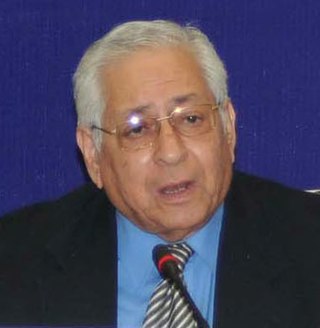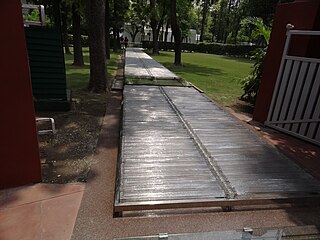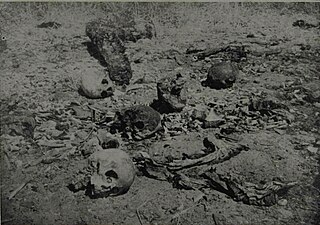Related Research Articles

Jagdish Tytler is an Indian politician and former Member of Parliament. He has held several government positions, the last being as Minister of State for Overseas Indian Affairs, a post from which he resigned after publication of a report by an official commission of inquiry, known as the Nanavati Commission.

Hari Krishan Lal Bhagat was an Indian politician of the Congress party. He served as the Deputy Mayor and Mayor of Delhi, the Chief Whip of Delhi Pradesh Congress Committee (DPCC), and as a six-time MP and Union minister for 22 years. Hailed as the “Uncrowned King Of Delhi" and "Kingmaker", Bhagat was commonly known for being a successful loyalist to Indira Gandhi and maintained unparalleled influence in Delhi and the Congress Party throughout the 1970s and 80s. During his time as a politician, Bhagat instated massive influence in Delhi, and it's often alleged that no Delhi politician could start their careers without the approval of Bhagat, thus giving him the name "Kingmaker". Bhagat's career reached its peak in the 1984 election, in which his victory for the East Delhi seat was second largest out of all 543 victories in the entire country. Bhagat's career declined in the early 1990s after he was named in several commissions investigating the role of Congress politicians during the 1984 anti-Sikh riots. His alleged role in the riots is controversial, though he was cleared by the government in two trials in the 1990s and early 2000s.
Bellur Narayanaswamy Srikrishna is an Indian jurist and a retired judge of the Supreme Court of India. From 1993 to 1998, he headed the "Srikrishna Commission" that investigated causes and apportioned blame for the Bombay riots of 1992–93. In 2010, he headed the "Srikrishna Committee" that was constituted to look into the demand for separate statehood for Telangana. He is the chairman of the Financial Sector Legislative Reforms Commission (FSLRC) and also works as an independent arbitrator.
Vithal Mahadeo Tarkunde, was a prominent Indian lawyer, civil rights activist, and humanist leader and has been referred to as the "Father of the Civil Liberties movement" in India and a former judge of the Bombay High Court The Supreme Court of India also praised him as "undoubtedly the most distinguished judge of the post-Chagla 1957 period" in the Bombay High Court.
Human rights in India is an issue complicated by the country's large size and population as well as its diverse culture, despite its status as the world's largest sovereign, secular, socialist democratic republic. The Constitution of India provides for fundamental rights, which include freedom of religion. Clauses also provide for freedom of speech, as well as separation of executive and judiciary and freedom of movement within the country and abroad. The country also has an independent judiciary as well as bodies to look into issues of human rights.

Soli Jehangir Sorabjee, AM was an Indian jurist who served as Attorney-General for India from 1989 to 1990, and again from 1998 to 2004. In 2002, he received the Padma Vibhushan for his defence of the freedom of expression and the protection of human rights.
Sajjan Kumar is an Indian politician. He was elected to the Lok Sabha, the lower house of the Parliament of India from Outer Delhi as a member of the Indian National Congress but resigned from the primary membership of the party after he was convicted and sentenced to life imprisonment in a case relating to the 1984 anti-Sikh riots.
The Justice G.T. Nanavati commission was a one-man commission headed by Justice G.T. Nanavati, a retired Judge of the Supreme Court of India, appointed by the National Democratic Alliance (NDA) government in May 2000, to investigate the "killing of innocent sikhs" during the 1984 anti-Sikh riots. The commission was mandated to submit its report within six months, but it took five years. The report in two volumes was completed in February 2005.

Rajindar Sachar was an Indian lawyer and a former Chief Justice of the Delhi High Court. He was a member of United Nations Sub-Commission on the Promotion and Protection of Human Rights and also served as a counsel for the People's Union for Civil Liberties.
S. Tarlochan Singh is an Indian politician. He is a Member of the Parliament of India, representing Haryana. He served as Chairman National Commission for Minorities from 2003 to 2006, was member, National Human Rights Commission of India, Govt. of India, 2003 to 2006. He served as Vice Chairman, National Commission for Minorities from 2000 to 2003.

Indian prime minister Indira Gandhi was assassinated at 9:30 a.m. on 31 October 1984 at her residence in Safdarjung Road, New Delhi. She was killed by her Sikh bodyguards, Satwant Singh and Beant Singh, in the aftermath of Operation Blue Star by the Indian Army between 1 and 8 June 1984 on the orders of Gandhi. The military operation was to remove Sikh militant Jarnail Singh Bhindranwale and other Sikh separatists from the Golden Temple of Harmandir Sahib in Amritsar, Punjab, the holiest site of Sikhism. The military action resulted in the death of many pilgrims as well as damage to the Akal Takht and the destruction of the Sikh Reference Library.

Ranganath Misra was the 21st Chief Justice of India, serving from 25 September 1990 to 24 November 1991. He was also the first chairman of the National Human Rights Commission of India. He also served as Member of Parliament in Rajya Sabha from the Congress Party between 1998 and 2004. He is the second Supreme court judge to become a Rajya Sabha member after Baharul Islam who was also elected as Indian National Congress member.

Harvinder Singh Phoolka, is a senior advocate of Delhi High Court, politician, human rights activist, and author. He served as the Leader of the Opposition in the Punjab Legislative Assembly.

The 1984 anti-Sikh riots, also known as the 1984 Sikh massacre, was a series of organised pogroms against Sikhs in India following the assassination of Indira Gandhi by her Sikh bodyguards. Government estimates project that about 2,800 Sikhs were killed in Delhi and 3,350 nationwide, whilst other sources estimate the number of deaths at about 8,000–17,000.
The Hashimpura massacre was the killing of 75 Muslim men by police on or around 22 May 1987 near Meerut in Uttar Pradesh state, India, during the 1987 Meerut communal riots. It was reported that 19 personnel of the Provincial Armed Constabulary rounded up 42 Muslim youths from the Hashimpura mohalla (locality) of the city, took them to the outskirts of the city, shot them in cold blood and dumped their bodies in a nearby irrigation canal. A few days later, the dead bodies were found floating in the canal and a case of murder was registered. Eventually, 19 men were accused of having performed the act. In May 2000, 16 of the 19 accused surrendered and were later released on bail. Whereas, the other three accused died in the intervening period. In 2002, the Supreme Court of India ordered that the case trial should be transferred from the Ghaziabad district court to a Sessions Court at the Tis Hazari court complex in Delhi.

The Hondh-Chillar massacre refers to the killings of at least 32 Sikhs on 2 November 1984 in a hamlet in the Rewari district of Haryana, allegedly by a political mob during the 1984 anti-Sikh riots. The local police did not intervene in the massacre, pursue a first information report filed by survivors, or help resettle the survivors. The mass graves at the massacre were rediscovered in January 2011. A similar massacre occurred in nearby Pataudi.
Ranjit Singh Narula was a former Judge of the Supreme Court of India, and former Chief Justice of the Punjab & Haryana High Court from May 1974 to October 1977. He was the acting Governor of Punjab in September 1977. He was earlier the Governor of Haryana from March to September 1976.

The Wall of Truth, is a memorial in New Delhi, India, for Sikhs killed during the 1984 anti-Sikh riots. The memorial is located in Lutyens' Delhi at the Gurdwara Rakab Ganj Sahib complex near the Parliament of India. The foundation stone was laid in June 2013, the construction work began in November 2014 and the memorial was inaugurated on 15 January 2017. The monument complex is also known as the 'Sikh Genocide Memorial'. It has been built under the Delhi Sikh Gurudwara Management Committee.

The 2020 Delhi riots, or North East Delhi riots, were multiple waves of bloodshed, property destruction, and rioting in North East Delhi, beginning on 23 February 2020 and brought about chiefly by Hindu mobs attacking Muslims. Of the 53 people killed, two-thirds were Muslims who were shot, slashed with repeated blows, or set on fire. The dead also included over a dozen Hindus, who were shot or assaulted. More than a week after the violence had ended, hundreds of wounded were languishing in inadequately staffed medical facilities and corpses were being found in open drains. By mid-March many Muslims had remained missing.
On September 5, 1985, at 9:20 am member of the Delhi Metropolitan Council, close associate of Sanjay Gandhi, and Congress leader Arjun Dass was assassinated by 3 Sikhs in Delhi. The assassins were Harjinder Singh Jinda, Sukhdev Singh Sukha, and another member of Jinda's group. They killed Dass in revenge for his role in the 1984 anti-Sikh riots. Along with Arjun Dass his bodyguard, a constable, was killed and 6 others were injured.
References
- 1 2 3 "Justice Narula passes away". The Tribune (Chandigarh). 7 November 1985.
- ↑ "Judicial inquiry into November 1984 riots". BBC Summary of World Broadcasts. The Press Trust of India. 31 July 1985.
- ↑ Tenorio, Vyvyan (6 June 1986). "Victimized Sikhs await redress". Christian Science Monitor (Boston, MA). p. 19.
- 1 2 George H. Gadbois, Jr (2 May 2011). Judges of the Supreme Court of India: 1950–1989. OUP India. p. 110. ISBN 978-0-19-908838-6.
- ↑ Manoj Mitta; H.S. Phoolka (19 December 2013). When a Tree Shook Delhi. Roli Books Private Limited. ISBN 978-93-5194-043-2.